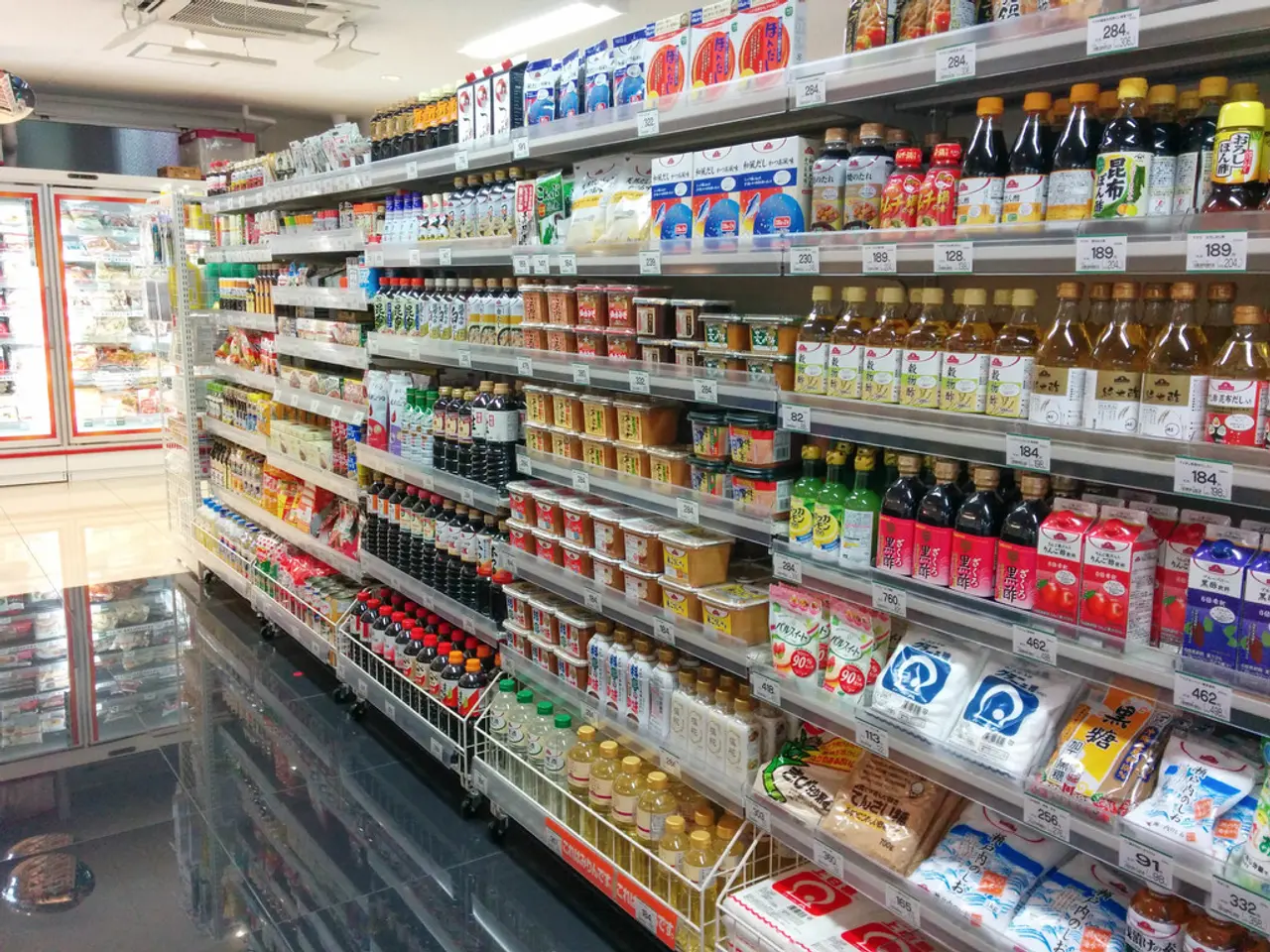Investigation into Trump Tariffs: Potential Role of Swiss Gold Refiners Amidst the Crisis?
The United States has imposed a 39% tariff on Swiss imports, marking the highest levies among developed countries. This move, primarily driven by the large U.S. trade deficit with Switzerland, is part of a broader trade agenda declared as a national emergency by the Trump Administration [1][2][5].
The tariff, which took effect on August 7, 2025, has had a significant impact on the Swiss economy, particularly the watch industry. The high tariff delivers a severe cost increase, disrupting an industry already under pressure from a post-pandemic downturn, inflation, a strong Swiss franc, and rising input costs such as gold [3][4].
Swiss luxury watchmakers like Rolex, Patek Philippe, Audemars Piguet, and Omega face higher costs that may be passed on to consumers or absorbed by shrinking margins, adversely affecting profits and market competitiveness, particularly in the largest single market for Swiss watches [2]. The tariff threatens broader economic damage beyond watches, including machinery and food sectors. It has triggered concern within Switzerland of rising unemployment and short-time work in critical regions such as the Jura Arc, which is central to watchmaking [2].
The Swiss government has expressed regret and continues negotiations seeking a better trade deal, but so far, diplomatic efforts have not prevented the tariff from taking effect [4]. The franc's appreciation alongside the tariff is worsening export competitiveness [4].
The Swiss gold refining sector plays a big role in the economy, but Swiss refiners make small profits on processing gold. However, the US has imposed tariffs on one-kilo gold bars, which could mean Swiss-processed gold exports to the US may also be subject to a 39% tariff [1].
The tariff mainly affects luxury and consumer goods such as watches, skin care and cosmetics products, precision instruments, and chocolate [1]. The Swiss government plans to focus on relief measures for export-oriented businesses and continue talks with Washington to find a solution [1].
Interestingly, the Swiss National Bank (SNB) argues that gold should be excluded from Washington's tariff calculation because most of the value comes from the gold itself, not Swiss labor or production [1]. Switzerland's non-gold producers argue they will take the hit from the tariffs, even though they're mostly not to blame for the imbalance [1].
The US has imposed tariffs on one-kilo gold bars, which could mean Swiss-processed gold exports to the US may also be subject to a 39% tariff. The 39% levy on gold may help demand for gold internationally, as more investors seek safe-haven assets during periods of uncertainty [1].
The Swiss government is considering the idea of importing US liquefied natural gas, despite logistical challenges as a landlocked country [1]. The Swiss government dropped tariffs on nearly all US imports, giving US producers virtually free access to Swiss markets [1].
Business association Economiesuisse has urged the government to continue talks aimed at cutting the tariffs, which are likely to have a severe impact on economic growth [1]. Keller-Sutter's proposal for a 10% tariff rate was also rejected by US officials [1]. A promise to hike investments in the US by $150 billion was also rejected by US officials during the most recent talks [1].
The Swiss Federal Council held an emergency meeting on Thursday afternoon regarding the 39% tariff imposed by the US [1]. Despite the challenges, the Swiss government remains committed to finding a solution and mitigating the impact on its economy.
- The tariff, a part of the Trump Administration's national emergency-declared trade agenda, has affected the world economy, particularly the watch industry in Switzerland.
- The Swiss government has expressed regret over the tariff and is actively seeking a better trade deal, but negotiations have not prevented its implementation.
- The Swiss gold refining sector, a significant part of the economy, may also be subject to a 39% tariff on one-kilo gold bars exported to the US.
- The tariff primarily targets luxury and consumer goods from Switzerland, including watches, skincare products, chocolate, and precision instruments.
- The Swiss economy faces broader damage beyond the watch industry, with sectors like machinery and food also threatened by potential unemployment and short-time work, especially in critical regions like the Jura Arc.
- The Swiss National Bank argues that gold should be excluded from Washington's tariff calculation, as most of the value comes from the gold itself, not Swiss labor or production.
- The Swiss government is discussing importing US liquefied natural gas, despite logistical challenges as a landlocked country, and has dropped tariffs on nearly all US imports.
- Business association Economiesuisse urges the Swiss government to continue talks aimed at reducing the tariff's impact on economic growth, while prior trade proposals, such as Keller-Sutter's 10% tariff rate and a promise to hike investments in the US by $150 billion, have been rejected by US officials.




